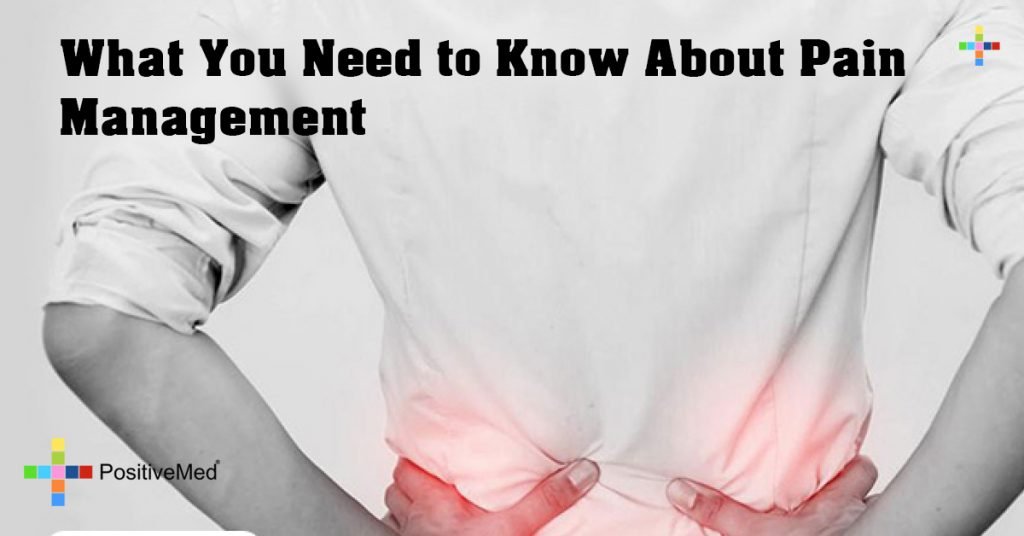
What You Need to Know About Pain Management
According to the British Pain Society, almost 10 million Britons suffer chronic pain on a daily basis, which not only has a major impact on their quality of life, but it can leave them constantly searching for a pain management plan that will get them back on their feet, and provide the long-term relief that they so desperately need.

When suffering with chronic pain, it can be tempting to self-diagnose and purchase painkillers from a to ease the symptoms, but whether your pain is the result of an accident, an injury, surgery, or a long-term illness, it is important that your condition is diagnosed by a doctor before implementing any kind of pain management plan.
The Three P’s of Pain Management
Unfortunately, we all experience pain differently and so there is no set pain management plan that works for everyone. Most medical professional divide treatment plans into three categories, which include pharmacological (i.e. pain relief medicines), psychological (mental and emotional therapies), and physical treatments such as physiotherapy.
Pharmacological Pain Management
One of the easiest and most effective ways of reducing chronic pain is with powerful opiate (or opioid) pain relief medicines. Broken down into two categories, weak opiates such as Codeine and Dihydrocodeine, and strong opiates such as Morphine and Tramadol, these painkillers are only available with a prescription from a medical professional, and as with all medicines, they do come with a list of side effects that patients may or may not experience when taking them.
The greatest risk with pharmacological pain management for chronic conditions is painkiller addiction, and so it is crucial that this type of treatment plan is supervised by a doctor.
RELATED ARTICLE: A Single Remedy for Common Body Pains

Psychological Pain Management
While chronic pain is a physical sensation, it also affects the body emotionally and psychologically, and so if you are to treat pain effectively, it is essential that feelings of depression, anxiety, and hopelessness are addressed as part of a pain management plan.
Psychological treatments include stress management, relaxation training, counselling, and pain coping skills, that will help you understand your pain, learn how to live with your condition, improve your feeling of wellbeing, and enhance your quality of life.
Physical Pain Management
Physical therapy plays and important role in managing pain, especially in chronic conditions caused by an injury of illness. Depending on the severity of your condition and the type of pain you are experiencing, your physical therapist may recommend low-impact aerobics training, core strengthening exercises, pain relief exercises, and gentle stretches that target those areas where you have pain.
Hot and cold therapies may also be beneficial, and if you are mobile, a 30-minute walk in the fresh air could be all you need to ease your symptoms, lift your mood, and help you lead a normal, happy, healthy life, even when coping with long-term pain.
Chronic pain should not be ignored and those suffering should not have to do so alone, there is a whole network of support and medicines out there that can help you get back on your feet and back to feeling like you again, so speak to your doctor about the pain management options available.
Disclosure Policy:
This blog is a collaborative blog written by a group of individuals. This blog accepts forms of cash advertising, sponsorship, paid insertions or other forms of compensation. The compensation received may influence the advertising content, topics or posts made in this blog. That content, advertising space or post may not always be identified as paid or sponsored content. The owner(s) of this blog is compensated to provide opinion on products, services, websites and various other topics. Even though the owner(s) of this blog receives compensation for our posts or advertisements, we always give our honest opinions, findings, beliefs, or experiences on those topics or products. The views and opinions expressed on this blog are purely the bloggers’ own. Any product claim, statistic, quote or other representation about a product or service should be verified with the manufacturer, provider or party in question. This blog does contain content which might present a conflict of interest. This content will always be identified.






